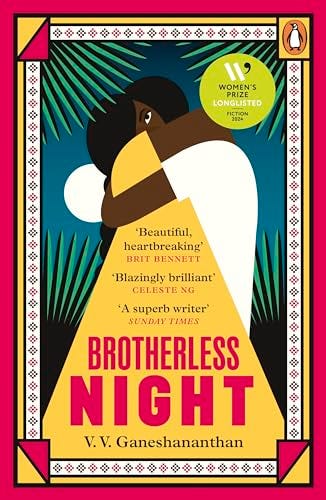How to make a decision
Or how to have a decision make you
How do decisions come to you?
I'm not talking about which non-dairy milk you'll have in your latte. I'm talking hulking, arrogant decisions, decisions that feel that they're wrenching you towards an unseen path, moving forward the intrigue of your little life.
Mine arrive first, slyly, as questions. Will I move back to my hometown? Am I going to change careers? Am I going to make this person my boyfriend? They orbit my head with the subtlety of big cartoon stars, finding ways to elbow into every thought, every conversation. My mind no longer wanders, but walks impatiently to these questions, and sits there, an expectant dog.
After the theatre of announcing themselves and receiving no response, these questions linger, and I come to know them as curious co-inhabitants in the house of my life. I calmly make space for them at the dinner table, on the adjacent pillow before I curl up to sleep. They ask themselves incessantly, and I regard them with weariness. Don't fuck with me, I say, and they pause dumbly before asking themselves all over again.
I manage to live peacefully with these questions because questions have no inherent power. They are an attempt at a provocation, not a provocation assured. We are accustomed to moving through life in a mist of unanswered questions. What if this, how come that. A question is an idea on auction, and we have the ultimate say on whether we'll make a bid.
With a question that hides a decision, though, you must bid eventually. And bid I do. I low-ball at first. I half-answer and see if it will scuttle off.
For example, in the question Will I move back to my hometown?, I will offer up the answer Maybe, let's see how I feel later this year and then death-stare the question in a performance of intimidation. This is simply a ritual; me and the question both know it won't slink away. But if you don't partake in the ritual you are not connected to a sense of caution, you are hurtling towards something with abandon. The ritual is an insurance.
Because then something subtle but important happens. After this exchange, the question re-arranges its insides, shuffles its component parts and presents itself anew. It shifts from:
Will I move back to my hometown?
to
I will move back to my hometown?
This is really fucking sneaky, and I resent the cleverness of it. It's a statement trying on a question and it echoes differently in the psyche. French and Portuguese and other Romance languages form questions like this by default, and god knows why because there's nothing romantic about curtailing open-endedness so violently. It's a cheap parlour trick.
Yes, I am being critical here, and it's because it's in this stage of decision-making where I experience the most friction, the most inertia. In changing the terms of the question, you can no longer give a half-answer but instead have to gather yourself and engage with it more assertively. The I will places a quiet demand on you, that you do away with vagueness, so by the time you've reached the question mark you're only really met with half the relief you were expecting. You're forced to approach the whole business with more gusto. It sucks.
And yet I always luxuriate in this stage because:
a) I am the kind of person who finds comfort in avoidance, and
b) this is the last time you can taste the glorious elixir of indecision.
I can sit for years in this purgatory and let it wash over me, busy myself with the unimportant practicalities of my life and let this newly worded question-statement bloat and grow and colonise all the spaces in me that are still vacant. I take pleasure in the indecision as a quiet form of resistance to the propulsive tendencies of the mind. I say, no, not just yet, let me stretch out like a cat in the unknown of this, before time hurries me forward as it always does.
Then, somehow, without warning, thoughts fortify into words and fly out of my treacherous mouth. I mention the possibility of a move back to my hometown in the familiar rhythm of a conversation with a friend, surprising myself. Soon I am testing how it feels to say it out loud, how it ricochets through the hallway of my body, if I can say it and believe the veracity of what I say. I start to throw meat onto the bones of the idea, an idea that I have now placed a winning bid on, the auctioneer smirking as they switch off the lights. Slowly, exquisitely, the question mark falls away and distils into a full stop. The Americans call this punctuation mark a period, which I like, because it signals the end of one. I will move back to my hometown.
The next bit you already know. You metabolise the decision and it becomes a part of you, it creates a new chapter heading and you furiously write whatever comes next. Soon you are living an action that started off as a thought and are now fielding a new cabal of questions with their own decision shadows, ones you hadn't conceived, ones that will cycle through the process all over again. Life canters on.
This is how decisions come to me. How do they come to you? Perhaps it is different.
A flatmate once told me that her decisions come to her like mystic revelations, that they travel up from somewhere cavernous and unreachable inside her and propel themselves out with uncontainable force. She woke me up one morning and told me she was quitting her job, and then walked out the door and did so. It was like watching a miracle.
I found myself envying it. That without her knowledge the decision had lived within her and one day pounced and that she was just along for the ride, doing its urgent bidding.
I have titled this How to make a decision, but I don't really think we make decisions, not when they are this big. I think they make us. I think we wrestle with them under the guise of equal footing, when really the decision has already been made deep within our recesses before it even presents itself as an initial question. I think decisions exist in the realm of intuition, a realm we are so trained out of inhabiting that instead we engage in the theatre of weighing up possibilities, as if we can bend the rules of the world to our whims. When people tell you to flip a coin to make a decision, and to observe in yourself what you're hoping the result will be as it whirs in the air, they are speaking to this quiet part of us that is deeply knowing, that already knows. I wish we were more tender with it. I wish we spoke to it more. Perhaps the business of decision-making would be less agonising.
I do not consider myself spiritual, I believe in little that I can't see around me. But of the lessons life has taught me, there's one that I hold tightly to me like a sermon.
You can try to happen to life, but more often than not, life happens to you. So let go. Find the decision burrowed within you and let it articulate itself through you. Unclench your grip, let it arrive in its own time.
It was never something you had to retrieve. It was just waiting for you to catch up.
Thanks for reading, as always. This week I wanted to share some things I've been reading / consuming. I'm not sure if I'll make a habit out of this but I really enjoy curated recommendations from other newsletters I subscribe to so I'm dipping my toe in these waters. Let me know if this is something you enjoy (or not!).
What I am reading:
This week I finished V.V. Ganeshananthan's Brotherless Night, a sweeping novel told from the point of view of a young Tamil woman in Sri Lanka during the anti-Tamil pogroms of the 1980s and the subsequent war between the government and the Tamil Tigers. I have to show my cards and say that I am half Tamil, and so this story finds a particularly empathetic home in me, but even so, I will say that it was one of the most singular and devastating books I have read a really long time. It portrays the brutality of genocide in an unfussy, sobering way. More here in my (gushing) Goodreads review.
On Substack, I enjoyed:
This essay from Tommy Misa, an ode to twinks and the femininity they incarnate, to self-containment, to growth. It's also funny.
Do we really want more male vulnerability in fiction? I didn't entirely agree with this piece by Andrew Boryga (why does queer male interiority not count?) but it was thought-provoking, and yet another reminder of the fact that the publishing industry is a curatorial force with biases like any other.
bodies of pleasure by natesha somasundaram is as beautiful as it is sprawling, a meditation of grief set against the backdrop of sweltering Sydney summer.
My friend Yassmin Abdel-Magied on why she writes (to see the world, or improve it?) and on being indispensable.
What I am listening to / watching:
I have been demolishing Ezra Klein's interviews since his Vox days and this one about the Big Tech divide within the MAGA movement in the US shed a lot of light for me on this new, bizarre political coalition between neo-nazis and tech bros. In particular their discussion on the role of masculinity in this movement was fascinating.
Oh, and before I forget: abracadabra amor ooh na na, abracadabra morta ooh gaga. Periodt.
Until next time!





Absolutely brilliant and beyond that so helpful. Thank you for offering your process with decisions or their process with you. Reminds me of the nature of a seed, its will to be fully flourished as itself already embedded in its consciousness/body as a seed. I did not know about this sneaky “I will” shift. How phenomenal to do that with the things that *truly* matter to us, rather than as you say the micro decisions of a day like what milk to choose. Do you see that our process with that micro decision reflects the process of our macro decisions? IE if we are not deciding in alignment with our intuition or sacred, tender true desires, then a hyper focus or immobility with micro decisions gets all wonky/over complicated? Interested in the dance between the micro and macro reflect eachother. Or perhaps the former just cease to really matter that much when we are in right relationship with the latter—- which is possibly to say in right relationship with our Self and our purpose if you believe in such…
Your writing is so so beautiful 🌺